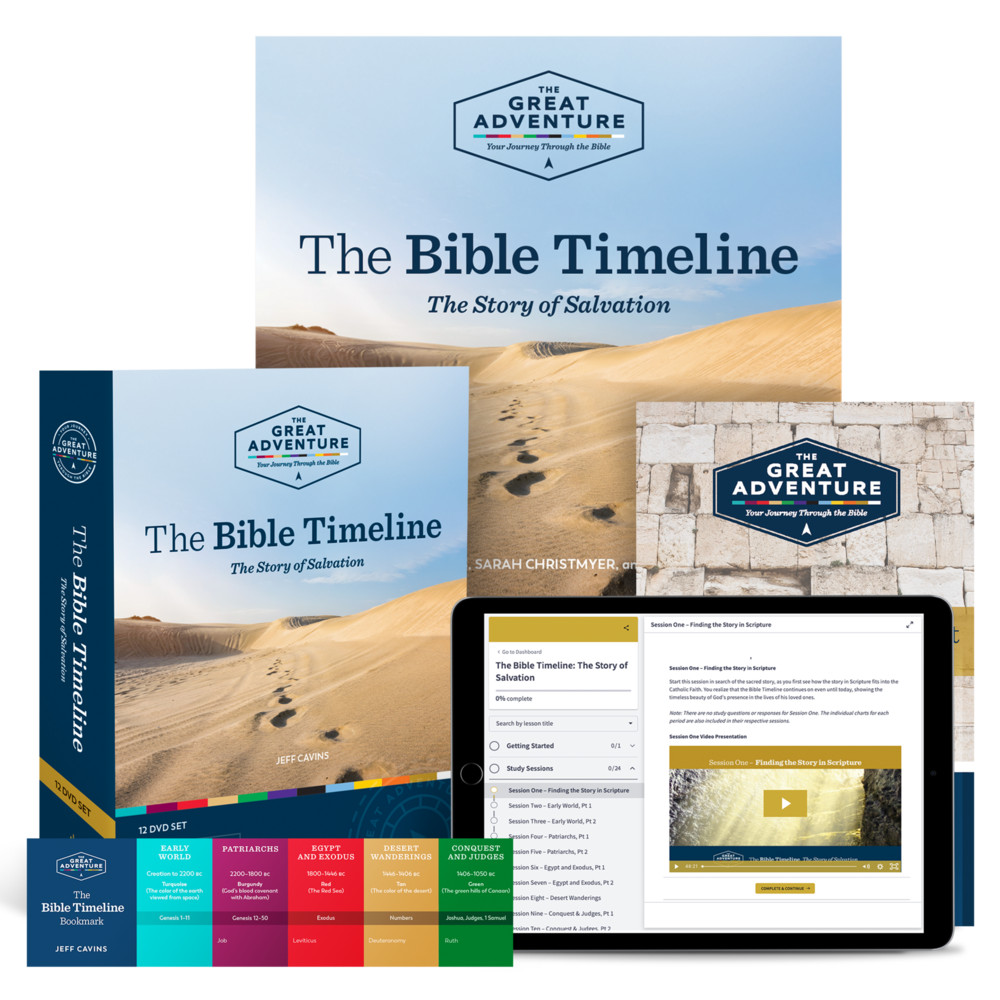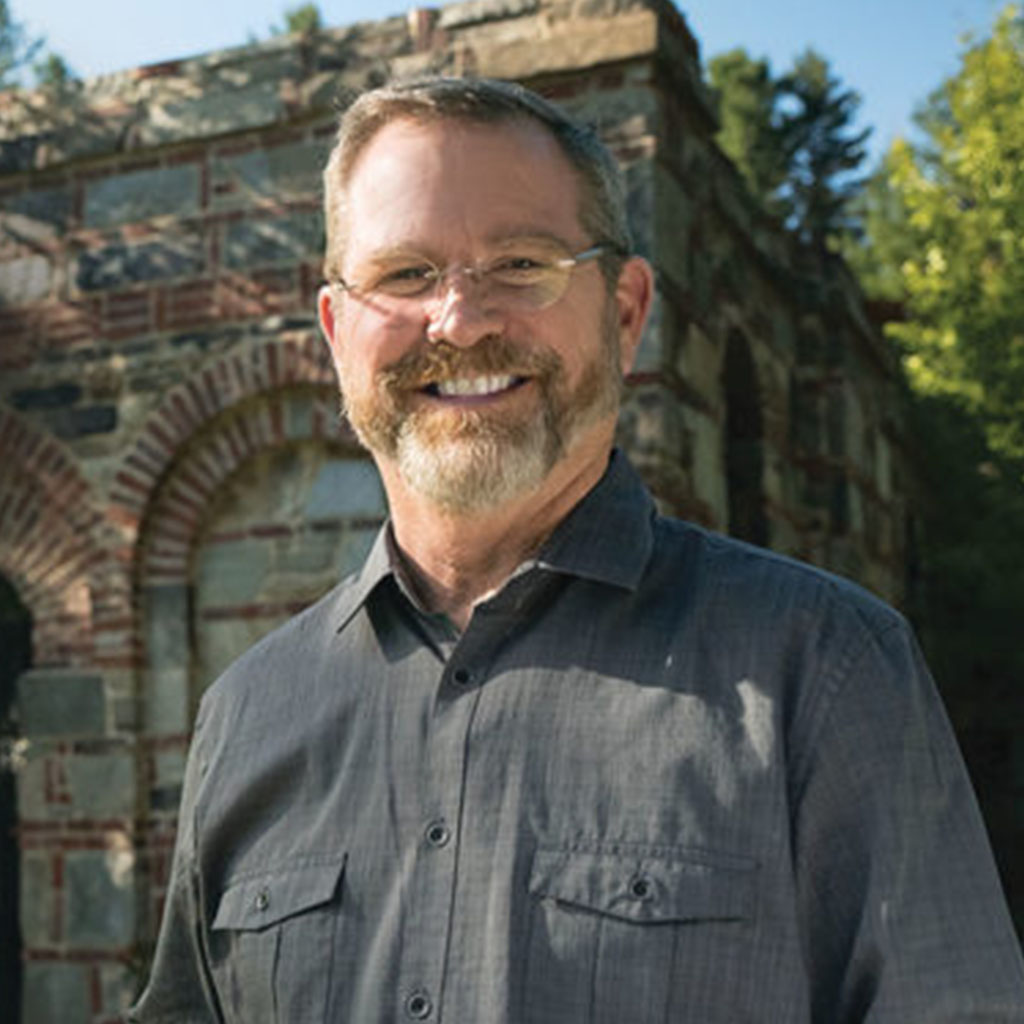Isaac was the son Abraham had been waiting for his entire life—Abraham and Sarah’s only son.
So it’s pretty unexpected and bewildering when God commands Abraham in Genesis:
“Take your son, our only son, Isaac, whom you love, and go to the land of Moriah, and offer him there as a burnt offering upon one of the mountains of which I shall tell you”
Genesis 22:2
How could a good and loving God demand Abraham participate in murder and human sacrifice, much less kill his own son?
Is God really that cruel?
After reading this article, you will understand the story of Abraham being asked to sacrifice Isaac as you never have before.
The important key to understanding this story is hidden in the story that immediately precedes it in the Bible—the story of Hagar and Ishmael.
Read more to find out.
Abraham’s Response
Abraham responds to God’s command with silent obedience. He rises early in the morning to set out for the journey to the mountain that God will show him where he is to sacrifice Isaac. He puts the wood for the sacrifice on Isaac’s back to carry up the mountain.
God’s command here continues to appear arbitrary. In fact, Genesis 22 seems to represent God’s ways as cruel and unpredictable. Again we ask, how could a loving God ask this of Abraham?

Deepen your faith by understanding the story of your salvation.
The Bible Timeline® study program will teach you how to read and understand the entire Bible and introduce you to the wonderful narrative of Scripture in a way that will transform your life.
The Key to the Story
Ancient Hebrew storytelling techniques require readers to see seemingly separate stories as inextricably related (after all, the Bible was not written in English or in the context of twenty-first-century America). The key to understanding this story lies in focusing on the parts of Scripture before and after it—the context.
The story of Abraham’s call to sacrifice his beloved son Isaac begins with a connection to the story of Hagar and her beloved son, Ishmael, in Genesis 21. The opening phrase of Genesis 22, “After all these things,” invites us to see these stories side by side and understand their important relationship.
The last time Abraham saw Ishmael, he was sending Ishmael and Hagar on a death march into the wilderness with just some bread and water because Ishmael’s existence (as Abraham’s first-born son by his wife’s maidservant) was a perceived threat to Isaac.
For all Abraham knew, Ishmael was now dead.
God tells Abraham to sacrifice his son Isaac as a “burnt offering.” Burnt offerings were one of the five major cultic sacrifices practiced by Israel, and the Jewish reader would know that burnt offerings were made for atonement. The technical term “burnt offering” is repeated five times in Genesis 22 to emphasize the importance of atonement in this story. The suggestion is that Abraham’s exile of Ishmael into the wilderness without sufficient supplies required atonement that was to be made in the sacrifice of his son Isaac.
There are other striking parallels between Genesis 21 (the story of Hagar and Ishmael) with Genesis 22 (the story of Abraham and Isaac). In both stories, a parent believes that the death of a beloved son is imminent. In both, an angel of the Lord comes with deliverance. God opens the eyes of Hagar, and she sees a well that will bring saving water, while Abraham lifts up his eyes and sees a ram that will replace Isaac as the burnt offering.
The Takeaway
These parallels point vigorously to the plot line of a larger story. God is making Abraham experience what Hagar experienced. God himself will spare both beloved sons, bringing home the point that although Isaac is the son of promise and Abraham is specifically chosen, God is the God of all.
Justice is universal, and no one is to be abandoned or treated with less than justice requires.
God hears the cry of Ismael and acts, and he sends his angel to keep Abraham from killing Isaac. God will see Hagar and reveal himself as defender of the alien, the orphan, and the widow, just as he will hear the cry of Sarah and give her a child of promise.
The pattern that emerges is that God is universal in both his justice and his mercy—justice because we reap what we sow, and mercy because God cares both for the child of the slave woman and the child of the promise.
In context, this story does not depict a cruel and unpredictable God, but a God of justice and mercy, who cares for all and wants to shape us into the most holy version of ourselves.

Deepen your faith by understanding the story of your salvation.
The Bible Timeline® study program will teach you how to read and understand the entire Bible and introduce you to the wonderful narrative of Scripture in a way that will transform your life.

Jeff Cavins is passionate about helping people understand Scripture and become disciples of Jesus Christ. Though he was born Catholic, Jeff went to Bible school and served as a Protestant minister for twelve years before reverting to the Catholic Faith. He then quickly became a leading Catholic evangelist and author. Jeff is best known for creating The Great Adventure Bible study programs published by Ascension, which have been used by hundreds of thousands of people to engage in Scripture in a life-changing way. Some of his recent projects include The Activated Disciple, The Jeff Cavins Show (his podcast), and the Great Adventure Bible studies, Ephesians: Discover Your Inheritance, and Wisdom: God’s Vision for Life.

Julia Amting is passionate about using modern communication channels to share the gospel and God’s beauty. A senior at Central Michigan University completing a Bachelor’s degree in Integrative Public Relations, Julia manages a small painting business and loves writing, hiking, trying new things, and adventures of all forms.






Hello Everyone! My name is Jesus Hernandez Dominguez and I just wanted to say that I found it interesting how the story of Abraham has so many parallels to that of Jesus. I also found it so awe-inspiring that God would save Isaac at the last second out of his love for humanity.
The issue of God saving isack because of Ismael crying is a lie where is it in the scripture?
Hello everyone! My name is Jesus Hernandez Dominguez and I attend Bishop O’dowd high school. I would just like to say that I greatly enjoyed reading this informative article!
I’ve listened to the BIAY for the 3rd time and this deeper insight of Hagar and Ishmael’s deeper connection of why the Angel saved Ishmael was a big Aha moment. Thank you for your awesome teachings of our beautiful Bible and our Faith.
Wow, this was a stunning revelation to me! Jeff Cavins has been given tremendous insight to the Bible and I am so grateful he has shared this with us. As a convert to Catholicism (2013), I still have a lot to learn and look forward to reading more of his work! Thank you Ascension for all you do!
Thanks for an interesting lesson about Abraham’ s willingness to sacrifice his son, ” Isaac.”
I always appreciate learning the background of biblical stories and this one is most enlightening. Though there are numerous parallels with the sacrifice of Isaac and that of Jesus there is one significant difference in the outcome – the love God has for Abraham in saving Isaac and the necessity of seeing His own Son die for all humanity.
In the story of Isaac there are also several parallels with the story of Jesus.
God asked Abraham to take his only son and make a sacrifice – to offer him as a burnt offering. God took his only son, Jesus and offered him as a sacrifice.
Abraham, a few men & Isaac took a donkey as they walked to where Isaac was to be sacrificed. Jesus rode on a donkey into Jerusalem, where he was to be sacrificed.
Isaac carried the wood that Abraham was going to burn to sacrifice Isaac. Jesus also carried his wood (cross) to where he was to be sacrificed.
Abraham built an altar, piled the wood on it then asked Isaac to lay on top of the wood. Jesus climbed uphill to Golgatha. There he was nailed to the wood of the cross.
On Mt Moriah, Abraham told his men to stay with the donkey, that they would worship then return to them. On the Mt of Olives Jesus told his disciples to sit there while he prayed.
Abraham carried with him the fire & a knife. The men coming to arrest Jesus carried swords.
An angel told Abraham to not harm Isaac in any way. With Jesus, the crowd yelled, “Crucify him! Crucify him!”
Thanks for the information and perspective, Mr. Cavins! My kids and I just read those stories in our homeschool earlier this week. This post was helpful to better understand and further reflect on those passages. God is truly just and merciful. To Julia – Fire Up Chips! (I’m a CMU alum, ’96)
Thank you Jeff Cavins, I understand the passages in a way that I never have before,
We don’t hear about the burnt offerings until Leviticus; who were the Hebrews in Abraham’s time?
I have heard various insightful explanations of this most challenging narrative. This adds another layer, seeing how God punishes, then heals. It is quite beautiful.
It is rather sick if that’s how you see it. Nothing beautiful about God asking Abraham to sacrifice his son. Totally sick.
I have also realized the parallels of God sacrificing his only son, Jesus. When we read the story of Abraham, we are heartbroken by the thought of his child being killed, yet God provides. In a similar way, he shows that he is capable of doing this because of his great love for us. We can somewhat imagine the pain and love that God the father has for humanity, to be able to allow the cross of salvation.